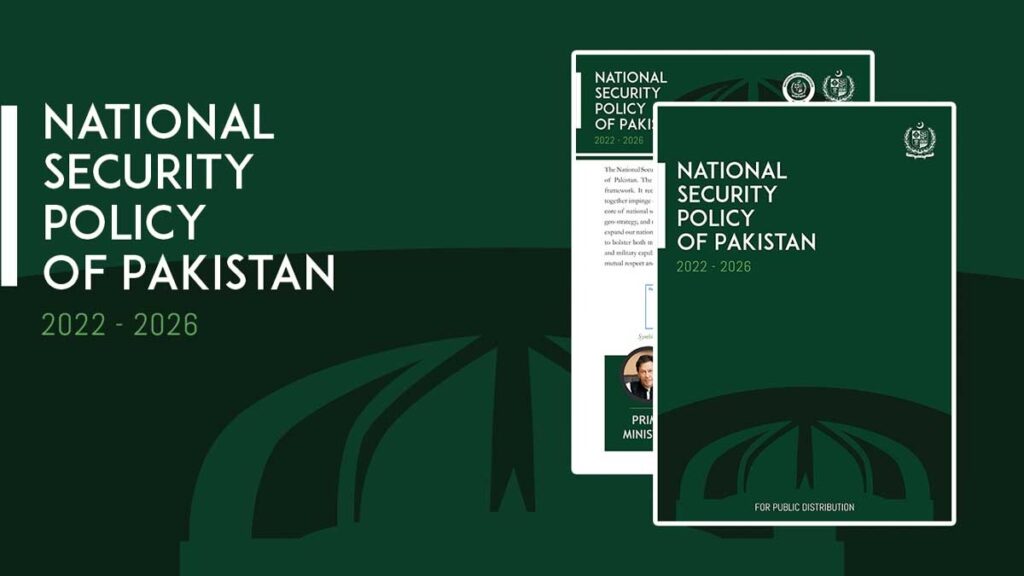

Dr Huma Baqai is an Associate Professor of Social Sciences & Liberal Arts, and former Associate Dean, Faculty of Business Administration, IBA Karachi as well as a visiting faculty at Air War College, National Institute of Management, Karachi.
19.01.2022
National security policy (NSP) is a framework for describing how a country may provide security for the state and its citizens and is often presented as an integrated document. The objective is ensuring the protection of the nation’s fundamental and enduring needs, protecting the lives as well as safety of its citizens, maintaining the sovereignty of the land, which includes its values, institutions, territory, and last but not least, provide for the prosperity of the nation.
As we enter the 21st century, Pakistan as a state and nation faces unprecedented challenges. It is a complex complicated country of 220 million people making it the fifth largest in terms of population with a very consequential territory. The blocks and barriers, which divided the world for over 50 years have largely fallen away. The need of the hour is to be ready to respond to the world of tomorrow. A world which is fragmented yet integrated, where the firewalls of ideology do not exist, yet the divisive forces at play are formidable. In this backdrop, Pakistan raised the curtain on the country’s first-ever national security policy.
The security policy was unveiled at the 36th National Security Committee meeting chaired by the Prime Minister Imran Khan. The meeting had both political and military representation. Federal Ministers and all Service Chiefs, and Chairmen Joint Chiefs of Staff Committees were amongst the attendees. The policy is not a hurriedly put together document and has been devised through a whole of government’s efforts over the last seven years. It included extensive consultation among Federal government institutions, provinces, including the governments of Gilgit Baltistan and Azad Jammu and Kashmir. Over six hundred academics, analysts, and students across Pakistan have been consulted to make the policy process inclusive. The private sector was also involved in the consultation. “The NSP has been made by consensus and no government will change it,” said Moeed Yusuf. The crux is to shift the unifocal thrust on traditional security to a more inclusive citizen-centric framework, the two fundamental pivots are ‘peace in the region’ and ‘economic security for the country’.
The document contains chapters on national cohesion, economy, defense, internal security, foreign policy, and human security. National security policy places equal emphasis on political, as well as economic diplomacy, besides listing peace in the region as the top priority. National Security Policies must balance between openness and secrecy and may have some elements of strategic ambiguity. They can have both public and classified versions. The national security policy of Pakistan is a 110-page document that will remain classified. However, a shorter, nearly 50-page version, has been published for public viewing. The implementation framework, and the indicators developed for monitoring and evaluating the progress made towards the policy execution are not being included in the public version. Topics such as accountability, curriculum review, governance challenges, including review of the 18th Constitution Amendment and future status of Gilgit-Baltistan, will be a part of the classified portion of the original document.
Pakistan now has a clearly spelled out security vision as a reference point and clear guidelines for foreign, defence, and economic policies. It should aid in better decision-making. The featuring of non-traditional security threats along with traditional security threats and the thrust towards widening of the security paradigm, if not entirely deepening of it where people’s security surpasses all, is encouraging and a step in the right direction.
As per DCAF (Geneva Center for the Democratic Control of Armed Forces) there are five main reasons for states to have an integrated and detailed national security policy:
- To ensure that the government addresses all threats in a comprehensive manner.
- To increase the effectiveness of the security sector by optimizing contributions from all security actors.
- To guide the implementation of policy.
- To build domestic consensus.
- To enhance regional and international confidence and cooperation.
The National Security policy of Pakistan is inclusive of all five. It addresses all the twenty first century challenges and threats to Pakistan in a comprehensive manner. The document has geo-economics as its core but also a non-negotiable focus on defence and territorial integrity of Pakistan, strengthening space-based technology and its application. Hybrid warfare finds a special mention with enhancement of information technology and cyber security as means to counter it. The emphasis is on balance in foreign policy and avoiding camp politics.
On the home front the document has a focus to establish writ of state across the country, zero tolerance towards terrorism, extremism, and last but not least fighting organized crime. The document is also both dynamic and evolving, which will be revised periodically to respond to the changing global environment and remain abreast with new challenges. The timing of this policy is also critical as Pakistan is facing both traditional and non-traditional security threats, and it must respond to both intelligently, to remain viable and thrive. Pakistan’s sovereign space is shrinking largely because of its economic constraints; the policy is cognizant of that. Regaining and expanding Pakistan’s sovereign space should be a top priority. The ongoing political polarization and blame game on issues of national security is harming the state. Pakistan now has a clearly spelled out security vision as a reference point and clear guidelines for foreign, defence, and economic policies. It should aid in better decision-making and taking the country forward.
Disclaimer: The views expressed in the article are of the author and do not necessarily represent the institute’s policy.
